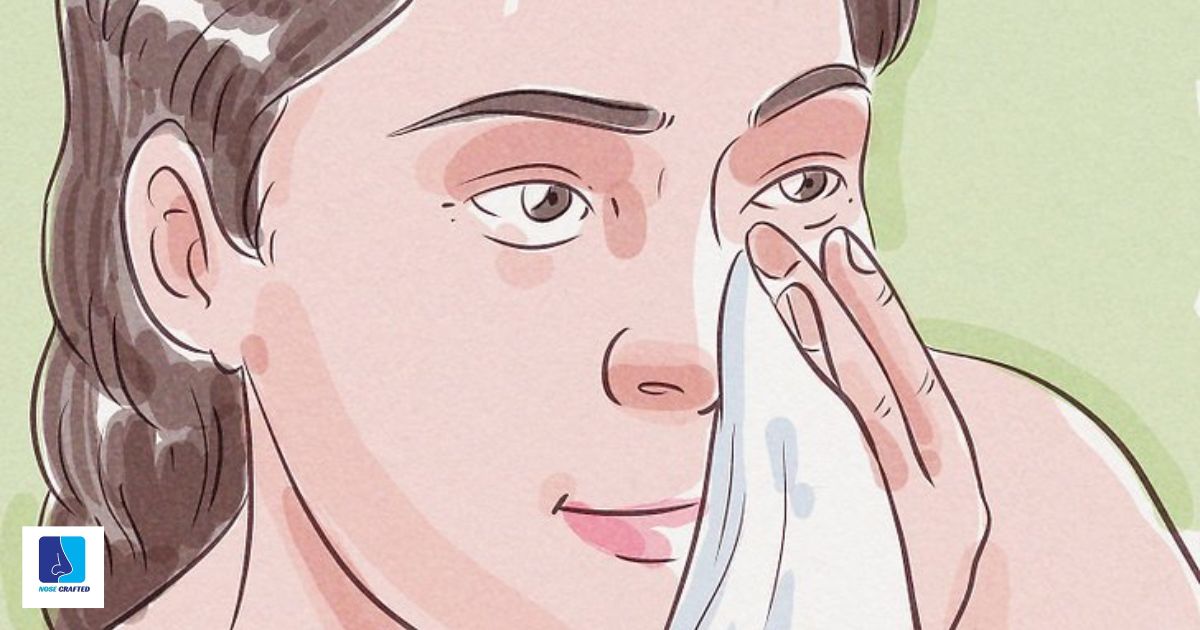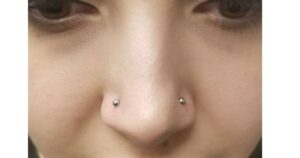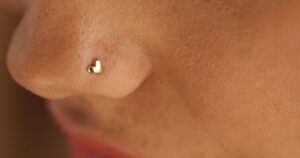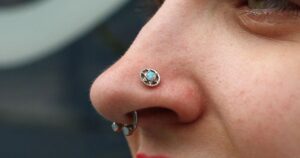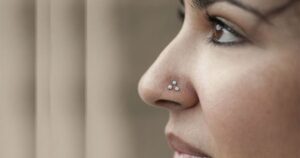Nose piercing is a form of body modification where a hole is made in the nose to insert jewelry. It can be done on different parts, like the nostril or septum. This practice has cultural, aesthetic, and personal significance. It is popular worldwide and often seen as a fashion statement.
Got a new nose piercing but worried about infections? Don’t let an infected nose piercing ruin your style and confidence! Taking the right steps can quickly heal your piercing and keep it looking great. Read on to discover essential tips on how to treat an infected nose piercing and ensure a smooth recovery.
Treating an infected nose piercing involves several steps. First, clean the area gently with saline solution twice daily. Avoid touching or twisting the jewelry to prevent further irritation. Apply a warm compress to reduce swelling and promote healing. If the infection persists, seek medical advice for proper treatment.
Is my nose piercing infected or just healing?
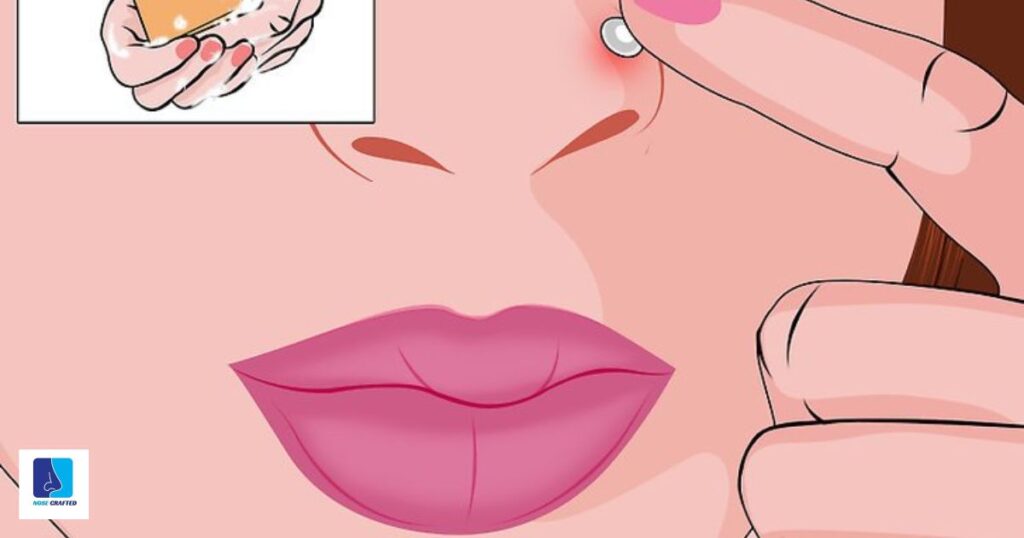
Wondering if your nose piercing is infected or just healing? It’s common to experience some redness, swelling, and tenderness during the initial healing period. However, if you notice severe pain, increased redness, yellow or green discharge, or a fever, these may be signs of an infection.
Pay attention to how long the symptoms last. Normal healing symptoms should gradually improve over a few weeks. If symptoms worsen or don’t improve, it’s likely an infection. In such cases, it’s important to follow proper care instructions and consult a professional if needed.
Is it a piercing infection or an allergy?
Determining if your nose issue is a piercing infection or an allergy can be tricky. Infections usually cause redness, swelling, pus, and pain, while allergic reactions often result in itching, rash, or clear fluid discharge. Allergies might also cause discomfort around the piercing without severe inflammation. Monitoring symptoms and seeking professional advice can help you identify the cause and choose the appropriate treatment.
Nose piercing infection treatment
Treating a nose piercing infection requires careful cleaning and proper care. Start by cleaning the piercing with a saline solution twice a day to remove bacteria and debris. Avoid using alcohol or hydrogen peroxide, as they can irritate the skin. Additionally, refrain from touching or twisting the jewelry to prevent further irritation and contamination.
Applying a warm compress can help reduce swelling and promote healing. If the infection does not improve or worsens, it’s important to seek medical advice. A healthcare professional may prescribe antibiotics or recommend other treatments. Prompt and proper care can ensure a smooth recovery and keep your piercing looking great.
Preventing a nose piercing infection
Preventing a nose piercing infection starts with choosing a professional piercer who follows strict hygiene practices. Ensure they use sterile equipment and provide detailed aftercare instructions. Clean the piercing twice daily with a saline solution and avoid touching it with unwashed hands. Additionally, avoid submerging the piercing in pools, hot tubs, or lakes during the healing process to prevent bacteria exposure.
Choose high-quality, hypoallergenic jewelry to minimize irritation and allergic reactions. Avoid changing the jewelry until the piercing is fully healed. Be mindful of activities that could bump or snag the piercing, such as sleeping on your stomach or wearing tight clothing. Following these steps can help ensure your nose piercing heals smoothly and stays infection-free.
Who’s at risk for nose piercing infections?
Anyone can be at risk for nose piercing infections, but certain factors increase the likelihood. People with weakened immune systems, diabetes, or skin conditions like eczema are more prone to infections. Additionally, poor aftercare practices, such as not cleaning the piercing regularly or touching it with dirty hands, can significantly raise the risk. If you’re considering getting your nose pierced, it’s essential to understand these risks and educate yourself on proper aftercare routines. You can find more information on what nose ring to get to minimize the chances of complications.
Using non-sterile equipment or going to an unprofessional piercer also heightens the chances of getting an infection. Those with allergies to certain metals, like nickel, should choose hypoallergenic jewelry to avoid adverse reactions. Proper care and choosing a reputable piercer can help minimize these risks.
When to call a healthcare provider about an infected nose piercing
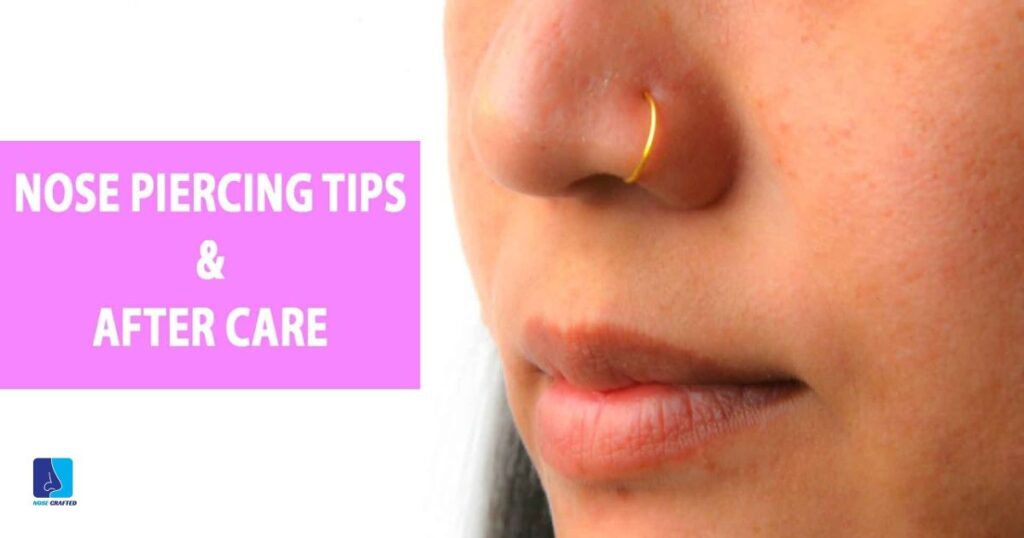
If you notice signs of infection in your nose piercing, it’s essential to know when to seek medical help. If home remedies don’t improve the infection within a few days or if symptoms worsen, it’s time to call a healthcare provider. Additionally, if you experience severe pain, excessive swelling, or discharge of pus from the piercing site, medical attention is necessary to prevent further complications.
Here are five key indicators that it’s time to reach out to a healthcare provider regarding your infected nose piercing:
1. Persistent redness, warmth, or tenderness around the piercing.
2. Development of a fever, which could indicate a more serious infection.
3. Increased swelling that doesn’t improve with home remedies.
4. Presence of green or yellow discharge, a sign of a bacterial infection.
5. Any signs of spreading infection beyond the piercing site, such as red streaks or swollen lymph nodes.
Conclusion
While nose piercings can be a trendy and expressive form of body art, it’s crucial to prioritize proper care and attention to avoid complications such as infection. Following simple hygiene practices like regular cleaning with saline solution and avoiding unnecessary touching or twisting of the jewelry can significantly reduce the risk of infection. However, if despite these precautions, you notice signs of infection such as redness, swelling, or discharge, it’s important not to delay seeking medical assistance.
Infections in nose piercings can escalate quickly if left untreated, potentially leading to more severe complications. By promptly reaching out to a healthcare provider at the first sign of infection or if symptoms persist despite home remedies, you can ensure proper treatment and minimize the risk of long-term consequences. Your health and well-being should always take precedence, so don’t hesitate to seek professional guidance whenever necessary. With the right care and attention, you can enjoy your nose piercing safely and confidently, expressing your unique style without compromising your health.
